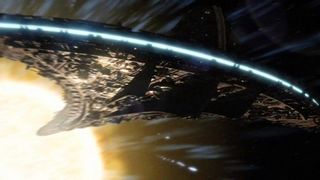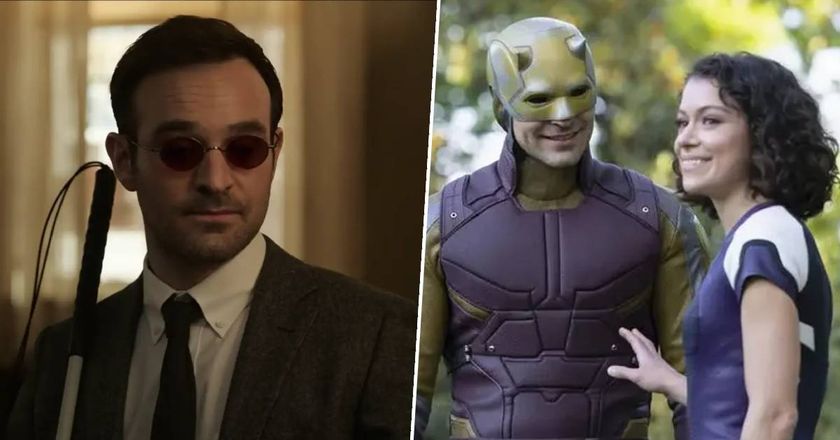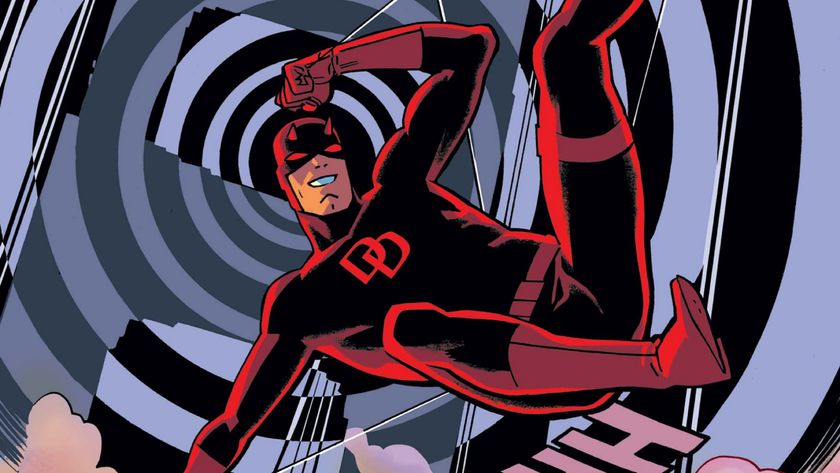PURE GOLDER The Gate Is Now Closing, And Not Just On SGU
None
The news of the cancellation of Stargate Universe is the end of an era in more ways than one, reckons SFX.co.uk editor Dave Golder

The end of Stargate Universe has put me in a melancholy mood, and not because I'm any great fan of the show. Or any of the Stargates to be honest. Sorry, I know that’ll probably generate dozens of “die infidel” posts in the comments section, but it's never a franchise that has pushed my buttons. I’ve tuned in to various episodes over the years, and liked some more than others; but I’ve never hated it, either (though I did loathe that sock puppet alien Thor thing and would cringe every time anybody said, “With all due respect”.) As with The X-Files , I generally preferred the comedy episodes. I still have very fond memories of “Window Of Opportunity” which must rate as the finest Groundhog Day episode ever attempted by a TV SF show, especially the bit with Richard Dean Anderson firing off golf balls into the Stargate.
I watched the first few episodes of Universe intrigued by this attempt to toughen up the ’Gateverse. I was impressed by Robert Carlyle, but irritated that “tougher and grittier” just seemed to mean turning the lights down. They never seemed to make the most of Carlyle either, which was a stupid waste. It was okay, though, and I've tuned into the occasional episode since.
But no Stargate show has ever been essential viewing for me. So why so sad?
Because the end of Universe isn’t just the end of Stargate . It’s the end of another era. When it goes off the air in mid 2011 – unless things change in the meantime – it’ll the first time in 24 years that there will be no new adult space opera on TV in the States.
The only chance the genre has is if Syfy decides to take Battlestar Galactica: Blood and Chrome to series. At the moment the network is only committed to a pilot. And this is Syfy we’re talking about - the channel whose dictionary defines “science fiction” as “lightweight, Earth-based fluff about unconventional, quipping investigators in quirky settings with identikit theme tunes”, so don’t hold your breath.
In 1987, The Next Generation burst onto our screens, became a major ratings hit, and prepared the way for a quarter century of spaceships, aliens and temporal anomalies. It spawned its own spin-offs, of course, but also the Stargate shows, the Babylon 5 shows (yeah, that had spin-offs too, remember – Legend Of The Rangers and Crusade ), Andomeda , Farscape , Firefly , Earth II , Mercy Point , Battlestar Galactica . I’m sure there are others I’ve forgotten. Feel free to remind me.
Sign up to the SFX Newsletter
Get sneak previews, exclusive competitions and details of special events each month!
But the ratings for these shows have been steadily dwindling. Admittedly, Next Gen had the advantage of being broadcast in a TV era when there were far fewer channels to choose from, but by any measure, it was a huge cultural phenomenon and had impressive audiences. It was mainstream. You couldn’t say that about any of its (direct or indirect) successors. Babylon 5 and Battlestar may have made ripples in the zeitgeist, but they never had massive cultural impact and the rest ranged from fan favourites ( Firefly , Farscape , Stargate ) to outright flops.
And recently, with Enterprise bringing the Trek franchise on TV to a whimpering end, Stargate Universe haemorrhaging viewers and Caprica being greeted with a collective shrug, it seems that mainstream audiences simply couldn’t give a Klingon’s fart about space opera shows. Maybe the shows themselves haven’t been good enough? Maybe they’ve become too identikit? Maybe people can’t take them seriously after Galaxy Quest ?
It’s tempting to say that space opera simply hasn’t been adventurous enough in recent years. Certainly, Universe , for all its good points, was, essentially, just another variation on Star Trek , and that’s true of many of these shows. The trouble with argument is that one show really did try to break out of the formula, and it failed as well – Firefly . Okay, Fox’s treatment of the show didn’t help, but whatever excuses you try to find, the sad fact is, it failed to find a large enough viewership. Mainstream audiences just didn’t seem to want to tune in to a space-based show, so they didn’t, and consequently lost out on discovering that it was actually considerably more than just another spaceship show.
Are FX the problem? Hollywood blockbusters now give us alien worlds about as far from “a forest planet that looks a bit like Canada” as you can possibly imagine. Small screen space battles can never compete with the dog fights in, say, the Star Wars prequels. Does small screen space opera just seem too “cheap” these days? Possibly, but that has always been the case. Next Gen rarely traded on its big FX sequences (though it did have some crackers) and here in the UK, Blake’s Seven was a massive ratings hit despite spaceships that were made out of hairdryers and primitive CSO that made blue fuzzy lines guest stars in every episode. Viewers clearly will watch space-based shows for something other than eyecandy. Space shows can simply play to the strengths of TV like any other drama series – concise plotting, the ability to nurture characters and the opportunities of serialised story telling. Because even episodic shows benefit from small elements of serialisation – remember the thrill we all got from the Next Gen ’s first season when elements from earlier episodes came to a head in “Conspiracy”?
So, what is the future for space-based TV series? Is there a future for space-based TV shows? Here in the UK we’ve got Outcasts coming up next year. And Doctor Who continues to journey into space regularly. But in America, the prospects look bleak. It not just the case that someone has to come up with a fresh new take on the genre, and write it with intelligence and wit. Joss Whedon tried that, and failed. Ronald D Moore tried that with the simply awesome Virtuality , and failed spectacularly.
No, the main hope for the genre is that a major network puts its faith (and its money) behind a space-based show. A good, new, fresh, exciting, original space-based show. Because what the genre is mainstream acceptance again, to inspire other broadcasters to take risks as well.
Years ago I wrote something like, “I predict that Babylon 5 will be the Captain Beefheart or Velvet Underground of TV SF; it’s not a major hit in terms of sheer number of viewers, but in the future, SF show writers will name it as a major influence.” Sadly, I was wrong. It seems a TV show does need that major cultural impact to really make a difference and change things. Otherwise we’re doomed to a future of military types in space on minor networks with dwindling audiences.

Dave is a TV and film journalist who specializes in the science fiction and fantasy genres. He's written books about film posters and post-apocalypses, alongside writing for SFX Magazine for many years.
Most Popular






